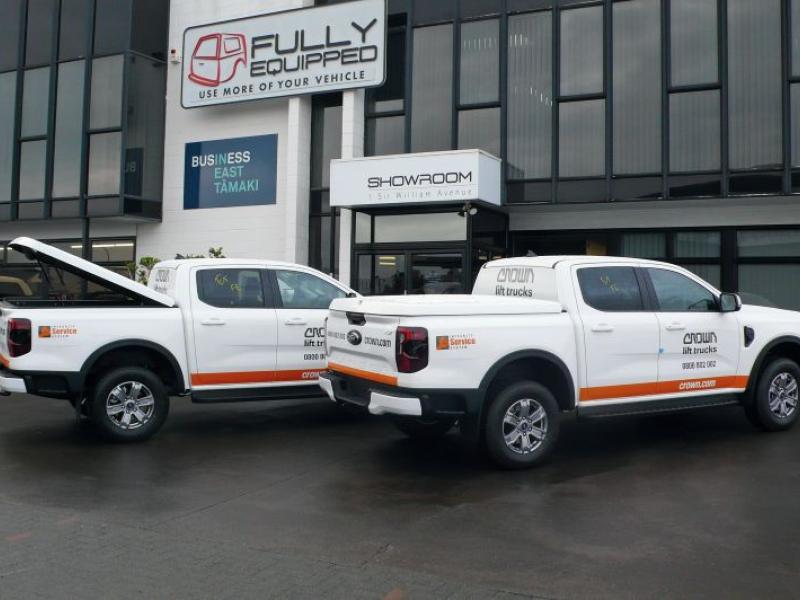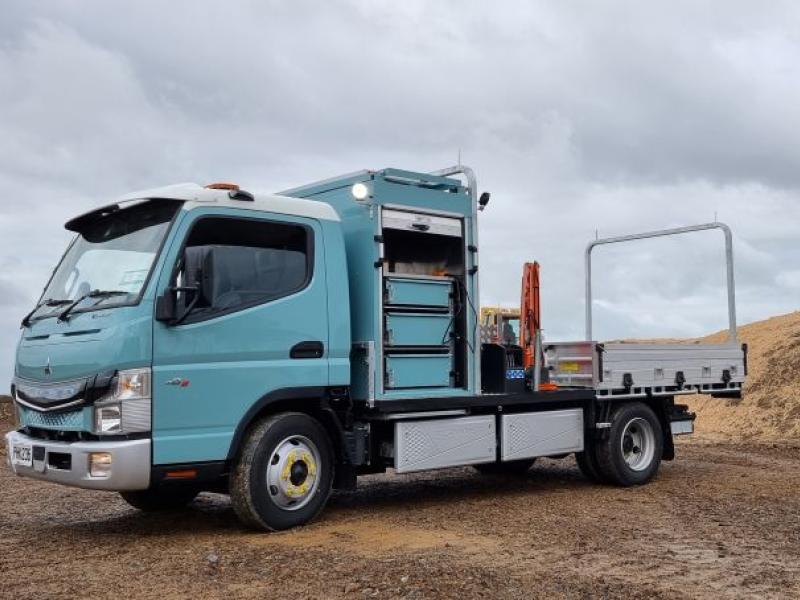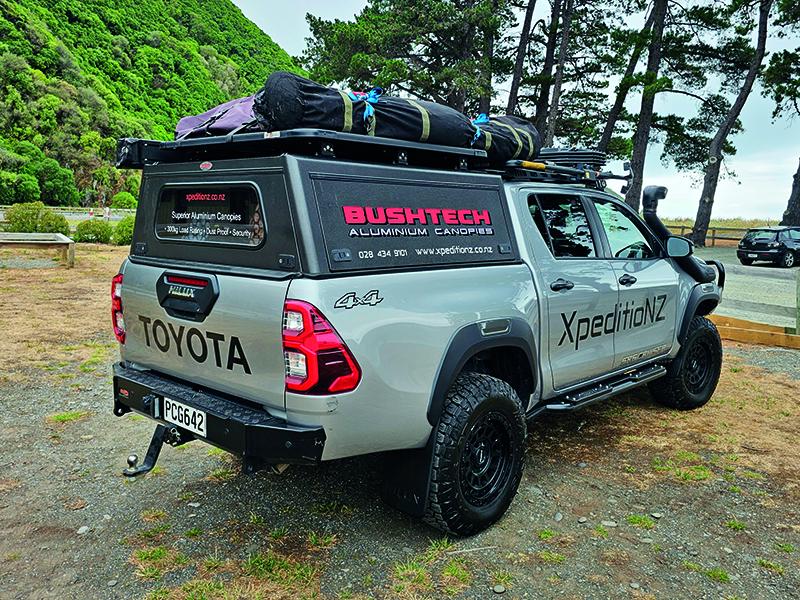Not so very long ago it was inconceivable that companies could use their vehicle fleet to determine the underperformers on their staff. Now, it is not only possible but proof is available to back up any disciplinary action that might be needed. Of course, that’s not what fleet management systems are primarily for, but it shows how far the technology has come. And, because nothing is static in this increasingly computer-focused world, where it may also be headed. Knowing who the company "lead foot" is, who is purchasing more petrol than their vehicle can hold, and who is in Taranaki when they’re supposed to be in Hawkes Bay is all possible now thanks to the fleet management systems offered by leasing companies. LeasePlan’s Fleet Reporting Leading the technology charge is Auckland-based LeasePlan. It is in the fortuitous position of having 45 years of leasing experience in 29 countries to draw from. With 1.3 million vehicles under lease worldwide, LeasePlan has the resources to spend as much on the development of its technology as some countries’ national debt. The fleet management tools available to local customers are the same as those used in other parts of the world and are leading edge. Managing director Charles Willmer says the key reason the company wins new business is because of the technology it can offer fleet managers. The LeasePlan tool is named Fleet Reporting and there’s virtually nothing about a fleet which it can’t tell you: who’s having accidents, who has been caught speeding, whose car is overdue for a service, who’s over their mileage budget, and which cars are due for replacement. Fleet Reporting is a web-based system which allows clients to view various aspects of their fleet on what is known as a dashboard (see diagram). This gives a quick snapshot of the fleet showing such statistics as total fleet kilometres (and what percentage this is over or under budget), fuel types, driver behavior (accidents and infringements) and a financial review, complete with trends graphs which can show six-monthly figures as far back as required. All this is available as reports which can be viewed in three file formats and emailed to anyone whose business it is to see them. Hundreds of different types of reports can be generated on almost every aspect of the fleet. And, if the information a company needs is not available, LeasePlan will customise the system. Recently added to the reporting system is CO2 emissions, which can enable socially responsible clients to monitor their carbon footprint. It is possible to drill down into the figures to find out what repairs have been carried out on an individual vehicle. But staff members who think they can ask the garage to install a tow bar when their company car is next in for a service had better think again. LeasePlan staff know exactly how much a service costs and won’t be authorising expenditure beyond that. Neither will the garage spend two hours on the work and charge for three. This type of tight financial control is how LeasePlan ensures vehicle fleet costs are kept as low as possible. It is the role of the account co-ordinator who works with the client’s key account manager to monitor all aspects of the fleet to see the customer is getting full value. Some 500 pieces of standard data are available for every one of LeasePlan’s 14,000 vehicles. Flexible and user-friendly, Fleet Reporting provides fleet managers with comprehensive reviews – undertaken quarterly or annually depending on the fleet size – from which flow recommendations about how the fleet might be better managed. The information can even be used in staff management issues. For example, fuel exceptions show who is filling up twice a day, or pumping more gas than their fuel tank holds or is wildly over their fuel budget. Or, mileage information might indicate that the territory a rep is covering is too large for them to be adequately servicing their clients. Being able to provide such a toolbox of information moves LeasePlan out of fleet management and into a partnership with clients. Willmer says that statistics influence everything a vehicle touches. "LeasePlan provides clients with a relationship roadmap which goes much, much further than merely providing vehicles." Cardlink’s PoolBook PoolBook is the latest offering from Cardlink and complements its fleet management tool, FleetSmart. A powerful add-on for any fleet management client running a pool vehicle fleet, PoolBook is an easy-to-use, online booking system that automates the entire reservation process, keeping track of drivers, vehicles and cost centres. A web-based service, PoolBook allows users to reserve a vehicle through any internet-enabled device. Users can search for available vehicles based on vehicle type, location and time. The system recognises users and restricts vehicles according to their profile. Making a booking is a simple click and confirm process, avoiding the problems of messy and potentially inaccurate paper-based systems. All booked vehicles can be reviewed and managed at a glance from a central point, by any designated staff member, greatly reducing the time needed to administer fleet pool vehicles. The charges associated with a vehicle’s use are also easily tracked, whether such fees are time or distance-based. These charges can then be allocated to the relevant cost centre and financial reports generated accordingly. In addition to the day-to-day management of clients’ fleets, FleetSmart has long provided individually tailored, as well as "off the shelf" management reporting to aid clients in the strategic planning of their fleet. PoolBook supplements this management information with vehicle utilisation, cost centre apportionment and driver usage patterns. Even though it is simple to use, PoolBook shines a spotlight on the often murky art of pool fleet size optimisation and cost allocation. Ben Unger, CEO for Cardlink, says, "FleetSmart saw a need to complement our fleet management package with an integrated system we have designed in-house, giving our clients greater control and efficiency for their pool vehicle fleet." Cardlink’s list of fleet management clients includes such public and private clients as ACC, Auckland, Christchurch, Dunedin and Wellington City Councils, Allied Workforce, Chubb, Telecom, Transfield, PGG Wrightson and Watercare Services Ltd. Total vehicle management Custom Fleet NZ, part of GE Commercial Finance is a global provider of total vehicle management and leasing solutions; managing over 1.5 million vehicles across 22 countries. The company’s online reporting tool is Key Access, which gives fleet managers 24/7 access to accessible ‘live’ data for convenient and immediate fleet management in a secure environment. Users see the information they need in real time, rather than having to wait for weekly or monthly reports. Key Access has a comprehensive suite of reports available, including a customisable option, that can be downloaded as an Excel file. This allows authorised users to run fleet summaries, identify vehicles due/overdue for service, download kilometre deviations, transfer vehicles between cost centres, make driver name and cost centre changes, check tyre usage and service history, check on vehicles due for expiry or on order, and retrieve FBT values. National manager, Sales & Customer Service, Peter Robb says Key Access has been developed specifically for the Australasian market. Its uptake with large customers has been strong although companies with smaller fleets don’t need quite the same high level of information. Robb says the system reduces the time spent on administration by whomever is charged with managing a fleet internally because all the information needed is available at any time, from any internet-enabled computer. Of course, such self-service, says Robb, doesn’t eliminate the need for account managers and customers may pick up the phone to place a query at any time. One of the key features of Key Access is the ability to drill down through levels of data to extract the most detailed pieces of information. These can be pulled together into reports where each parameter can be selected or deselected, as needed. This simple-to-use tool helps the analysis of costs and can be uploaded into reports for managers’ use. Robb says GPS tracking or telematic systems, while not yet popular with New Zealand fleet managers because of their cost, offer a myriad of opportunities for fleet managers. An example of GPS tracking use would be an organisation which transports expensive metals as a raw material banning its vehicles from entering within a certain radius of any scrap metal dealers. GPS could alert the company when a vehicle crossed this line and allow them to track any ‘lost’ materials. In the past five years their price has reduced considerably but, while GPS systems are becoming more acceptable, they are not yet mainstream. Every new version of GPS is a substantial improvement on the previous incarnation, according to Robb, so they are likely to gradually filter into New Zealand fleets. GSB’s consultancy service Wellington-based GSB offers a suite of services that assist government funded organisations, corporates and individuals to manage vehicles as assets through "whole of life". The "whole of life" is based upon time and distance traveled, guided by the respective operator’s ownership policy. GM Vehicles, Jack Gordon-Crosby, calls it the ashes-to-ashes approach. GSB has been a long-time vehicle and related services provider for both government and strategic corporate clients, providing consultancy services for fleet managers that takes into account every aspect and cost associated with running vehicles as fleet assets. Gordon-Crosby says GSB is a specialist in running tenders for establishing contracts and currently has 27 vehicle-related contracts, from distributors to disposal services. Using the GSB-developed Total Cost of Ownership model, it can assist its clients determine the best vehicle or vehicles for each individual purpose. Every cost, not just the discounted purchase cost, is built into the model. This includes the factory specified unit cost, on-road costs, fit-outs, accessories, cost of finance, scheduled maintenance, fuel, tyres, regulatory compliance, refurbishment, disposal etc. Gordon-Crosby says this is important because if you don’t have all the facts, what may appear to be a good buy may cost you over the life of the vehicle. This service is aimed at fleet owners who view their vehicles as an asset. The approach provides clients with independent, non-biased, factual data to make well informed sourcing decisions, says Gordon-Crosby. He describes GSB as being ‘knowledge-centric’. "We are unique, independent and transparent and act as a conduit to the market for the provision of fleet related goods and services," he says.
How Technology will manage your fleet
Vehicle Fitout
Thursday, 03 April 2008
File Download:





